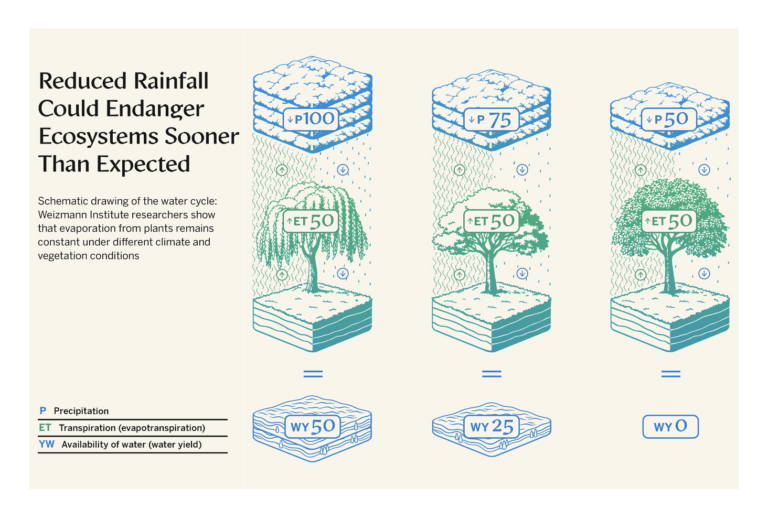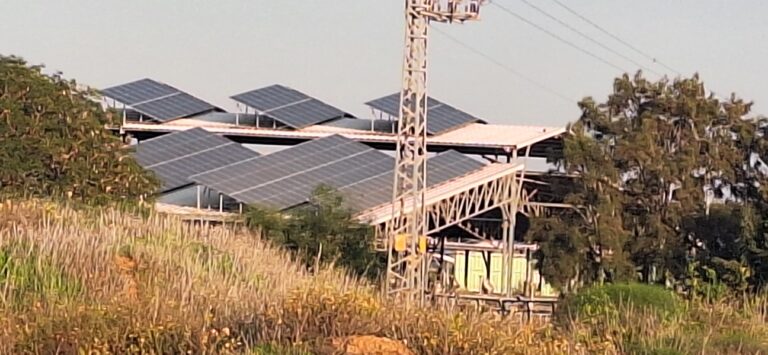Journée européenne de la diplomatie climatique, 17 juin 2015 : discours de Gilles Pécassou (France) à la Knesset (Israël)

[:fr]A l’occasion de la visite en Israël d’une vingtaine d’Ambassadeurs de l’union Européenne venus s’informer sur les installations solaires et les mesures en faveur de l’environnement de la Knesset (projet parlement vert), Gille Pécassou a rappelé l’échéance de COP21 et les objectifs de la « 21ème conférence des parties climat » qui se tiendra à Paris du 30 novembre au 11 décembre 2015.
Discours de Gilles Pécassou, 1er conseiller à l’ambassade de France en Israël, à la Knesset le 17 juin 2015 :
« Cette deuxième édition de la Journée européenne de la diplomatie du climat est d’une importance particulière cette année. Dans environ 200 jours, nous espérons adopter un accord historique à Paris. C’est un grand honneur de prendre la parole à la Knesset et une excellente occasion de souligner combien la COP21 est importante pour la France, pour Israël, pour l’Europe et pour le reste du monde.
Permettez-moi de décrire les objectifs de la Conférence qui se tiendra à Paris.
Réduire les conséquences du changement climatique est une nécessité, qui s’appuie sur des bases scientifiques solides. Nous devons agir maintenant, pas demain. Nous devons agir, non pour empêcher le changement climatique – il est déjà trop tard – mais pour le maintenir à un niveau supportable et à contenir ses effets désastreux en termes de de biodiversité, d’approvisionnement alimentaire, d’augmentation du niveau des océans... En termes clairs : si on ne fait rien, nous allons atteindre les 6° C en 2040, alors que notre objectif est de rester en dessous de la barre des 2°C.
Cela semble un objectif modeste, mais le défi qui nous attend est énorme. Nous devons concilier notre aspiration légitime à la prospérité avec les limites naturelles de notre planète, en respectant les contraintes de chaque pays et équilibrer les responsabilités entre pays riches et pays en développement.
La France a obtenu la présidence du prochain sommet COP21 à Paris. Nous prendrons la suite de la présidence péruvienne au 1er jour de la Conférence. C’est un grand honneur, mais c’est aussi une grande responsabilité.
Afin de contenir progressivement le réchauffement climatique à la limite de 2°C et d’adapter nos sociétés et nos économies, nous organisons la conférence de Paris autour de 4 piliers :
– un outil universel et juridiquement contraignant qui remplacera le Protocole de Kyoto de 1999
– les contributions nationales de chacun des 196 Etats participants seront annoncées avant la conférence COP 21
– un financement à long terme (100 milliards de dollars par an en 2020 selon les engagements de Copenhague) pour conduire la transition vers la réduction du carbone, en particulier dans les pays en développement
– un effort pour atteindre au-delà des gouvernements, les villes, le monde des affaires et la société civile, qui doivent être impliqués dans notre effort collectif si nous voulons des résultats « meilleurs, plus vite et moins coûteux ».
La communauté internationale s’est réunie à Bonn il y a quelques jours pour des consultations informelles, afin de rationaliser le document final de la Conférence des Parties 2COP1. D’autres réunions ministérielles seront nécessaires et nous allons en organiser en juillet et septembre. Nous prévoyons également de convoquer une réunion des chefs d’État et de gouvernement en marge de l’Assemblée générale en septembre, réunion présidée par le Président français et le secrétaire général de l’ONU Ban Ki Moon.
Israël, en tant que membre de l’OCDE, doit donner l’exemple.
Afin d’être en mesure de contrôler l’adéquation des engagements généraux, nous avons établi un processus consistant à soumettre, avant la conférence, les contributions nationales (INDC). Chaque pays doit préciser d’ici le 1er octobre les efforts qu’il engage afin d’atténuer ou réduire les émissions de gaz à effet de serre et adapter son économie à ce nouveau paradigme… »
Discours complet sur ambafrance-il.org[:en]
Dear MK David Amsalem, Chairman of the Interior and Environment Committee, Ladies & gentlemen Members of Knesset, Distinguished European colleagues,
This second edition of the European Climate Diplomacy Day is of special importance this year. In about 200 days we will hopefully be adopting a historical agreement in Paris.
It’s a great honor to speak at the Knesset and a great opportunity to stress how important is the COP21 for France, for Israel, for Europe and for the world.
Let me outline our goals for the Paris Conference. Mitigating climate change is a necessity, now well documented, and we need to act now, not tomorrow. We need to act not to prevent climate change -it is already too late for this- but to keep it at a bearable level and to contain its dire effects in terms of biodiversity, food supply, increase of ocean levels etc. In simple terms : if nothing is done we will be reaching 6°C in 2040, our goal is to stay below the bar of 2°C.
This seems as a modest target, but the challenge ahead of us is huge. We need to reconcile our legitimate aspiration for prosperity with the natural limits of our planet, respecting the constraints of each country and balancing the responsibilities between rich and developing countries.
France has been granted the presidency of the Paris summit. We will be taking over the Peruvian presidency by the 1st day of the Conference. This is a great honor, but also a great responsibility.
In order to progressively contain global warming within the limit of 2 Celsius degrees above pre-industrial levels and adapt our societies and economies, we intend to organize the Paris conference around 4 pillars :
![]() First, a universal and legally binding instrument that will replace the Kyoto Protocol of 1999 ;
First, a universal and legally binding instrument that will replace the Kyoto Protocol of 1999 ;
![]() Second, national Contribution by each and every of the 196 participating States, to be announced before the COP 21 conference ;
Second, national Contribution by each and every of the 196 participating States, to be announced before the COP 21 conference ;
![]() Third, pre 2020 and long term financing (100 billion dollars per year in 2020 according to the Copenhague commitments) to drive the transition towards low carbon economies, in particular in the developing countries ;
Third, pre 2020 and long term financing (100 billion dollars per year in 2020 according to the Copenhague commitments) to drive the transition towards low carbon economies, in particular in the developing countries ;
![]() Fourth, an effort to reach out beyond Governments, to cities, business community and civil society, which have to be involved in our collective effort if we want “better, faster and cheaper” results.
Fourth, an effort to reach out beyond Governments, to cities, business community and civil society, which have to be involved in our collective effort if we want “better, faster and cheaper” results.
The international community gathered in Bonn a few days ago for informal consultations, in order to streamline the final document of the COP 21. Other ministerial meetings will be needed and we will organize such venues in July and September. We also plan to convene a meeting of Heads of States and Governments on the margin of the UNGA in September, meeting chaired by the President of France and UN secretary general Ban Ki Moon.
Israel, as a member of the OECD, should set an example.
In order to be able to monitor the adequacy of the general commitments, we set a process consisting in submitting, ahead of the conference, national contributions – or “intended nationally determined contribution” (INDC). Each country has to specify by the 1st of October the efforts it commits itself to in order to mitigate or reduce greenhouse gas emissions and adapt its economy to this new paradigm.
At this date, around 40 countries submitted their contributions, including the 28 countries of the EU. Israel is not part of them. The EU announced its commitment to reduce its emissions by at least 40% by 2030 compared to 1990. And to reduce it by at least 80% by 2050.
I encourage Israel to submit by October an ambitious contribution, in line with the objectives put forward by its government in 2010, reflecting its status of advanced economy.
That was the message conveyed last month by Mrs. Bérengère Quincy, French Ambassador for COP21, who had very fruitful meeting with the different Israeli stakeholders, including MK Tamar Zanberg. This is also my message today.
Let me finish by emphasizing once again the importance for each country to mobilize beyond its central governement.
The Israeli authorities took the opportunity of Mrs. Quincy’s presence to organize a thorough discussion including local authorities and NGOs. We were struck by their expertise, awareness and will to pave the way for an ambitious Israeli contribution.
This is exactly the path followed by France when we launched in 2007 a comprehensive process of national debate and consultation, the “Grenelle of Environment”. This important public mobilization of non governmental actors, which lasted more than one year, contributed to put this topic on top of the political agenda till now in France.
As I said, civil society and the business community are an integral part of the “Paris alliance”. We encourage all those carrying initiatives to come to Paris and talk about new, concrete and measurable commitments on the occasion of a dedicated Action Day foreseen on December 5th.
And because we know what Israel has to offer in terms of private initiatives and innovation, we hope Israel’s recognized expertise in new technologies will be put forward in Paris.
My country is honored to host the COP 21 conference. 40 000 participants are expected at Le Bourget at the beginning of December, for 15 days. The cost will be well over a hundred million dollars. We will be ready as a host and presidency because we know that what is at stake is the future of our planet and the way our children and grandchildren will live.
If it is a success, it will be a collective success. We count on Israel to be part of it, and we count on you, members of the Knesset, to make sure your country is ready for December.
Thank you very much.
[:]







